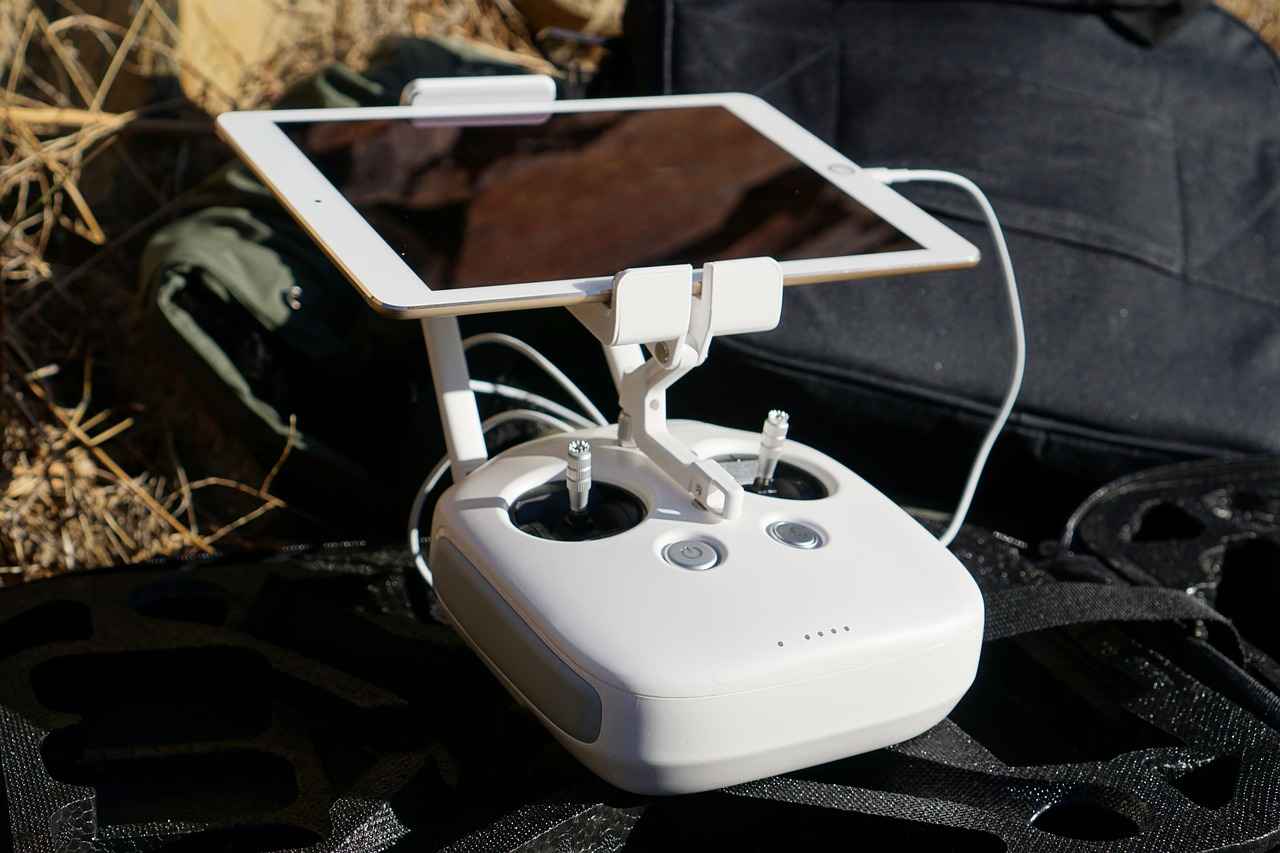This article serves as a comprehensive guide to help you locate lucrative part-time remote data entry positions. In today’s competitive job market, having the right strategies and resources is crucial for success. Below, we delve into various aspects of data entry jobs, including essential skills, job listings, and tips for acing interviews.
Understanding Data Entry Jobs
Data entry jobs primarily involve inputting, updating, and maintaining data across different platforms. These roles play a significant part in the digital economy, ensuring that information is accurate and accessible.
Benefits of Remote Data Entry Positions
- Flexibility: Work from anywhere, anytime.
- Work-Life Balance: Manage personal and professional commitments effectively.
- Higher Pay: Many remote positions offer competitive salaries.
Essential Skills for Data Entry Jobs
To thrive in data entry, candidates should possess skills such as:
- Typing Speed: A minimum of 60 words per minute is often required.
- Attention to Detail: Accuracy is paramount in data entry tasks.
- Software Proficiency: Familiarity with tools like Excel, Google Sheets, and database software is essential.
Where to Find Data Entry Job Listings
Numerous platforms offer remote data entry job listings. Consider visiting:
Crafting a Winning Resume
A well-structured resume can significantly enhance your chances of landing a data entry job. Ensure to highlight relevant skills and experience, using bullet points for clarity.
Tips for Acing Interviews
Preparation is key for interview success. Practice common questions and familiarize yourself with best practices to make a great impression.
Freelancing vs. Full-Time Data Entry Jobs
Consider the pros and cons of freelancing versus full-time roles. Freelancing offers flexibility, while full-time positions may provide stability and benefits.
Networking for Remote Opportunities
Building a professional network can lead to valuable job referrals. Utilize platforms like LinkedIn to connect with industry professionals.
Staying Organized and Productive
Self-discipline is crucial in remote work. Create a dedicated workspace and set a daily schedule to maintain productivity.
Common Pitfalls to Avoid
Be aware of mistakes that can hinder your job search. Avoid applying for roles that do not match your skills or experience.
Salary Expectations for Data Entry Jobs
Understanding typical earnings is essential for negotiating offers. Part-time remote data entry jobs can range from $15 to $25 per hour, depending on experience and complexity.
Future Trends in Data Entry Jobs
The data entry landscape is evolving with advancements in technology. Stay updated on emerging trends to remain competitive in the job market.

Understanding Data Entry Jobs
Data entry jobs are a vital component of the modern workforce, playing a significant role in the management and organization of information across various industries. These positions primarily involve inputting, updating, and maintaining data in different formats, which can range from spreadsheets to databases. As businesses increasingly rely on data-driven decision-making, the demand for skilled data entry professionals continues to grow.
In today’s digital economy, the significance of data entry roles cannot be overstated. Companies require accurate and timely data to operate effectively, making these positions essential for maintaining operational efficiency. Data entry professionals ensure that information is correctly logged, which helps in generating reports, conducting analyses, and making informed business decisions.
Moreover, the nature of data entry jobs has evolved with technological advancements. Many organizations now utilize sophisticated software and tools that streamline the data entry process, allowing for greater efficiency and accuracy. As a result, data entry professionals are often expected to possess a certain level of technical proficiency to navigate these systems effectively.
Additionally, the rise of remote work has transformed the landscape of data entry jobs. Many companies offer flexible remote positions, enabling individuals to work from the comfort of their homes while contributing to the organization’s data management needs. This shift not only enhances work-life balance but also opens up opportunities for a broader talent pool.
In conclusion, understanding the intricacies of data entry jobs is crucial for those looking to enter this field. As the demand for accurate data management continues to rise, these roles will remain significant in the evolving job market, providing valuable opportunities for professionals willing to adapt and grow in their careers.

Benefits of Remote Data Entry Positions
Remote data entry jobs have gained immense popularity in recent years, offering numerous advantages that appeal to job seekers from various backgrounds. In this section, we will explore the key benefits of these positions, highlighting why they are an excellent choice for many individuals.
- Flexibility: One of the most significant advantages of remote data entry jobs is the flexibility they provide. Employees can often choose their own hours, allowing them to work at times that suit their personal schedules. This flexibility is particularly beneficial for those balancing family commitments or other responsibilities.
- Work-Life Balance: With the ability to work from home, individuals can create a work environment that promotes a healthier work-life balance. This setup minimizes commuting time and allows for more personal time, contributing to overall well-being.
- Higher Pay Potential: Many remote data entry positions offer competitive salaries, often higher than traditional in-office roles. This is especially true for specialized data entry tasks that require advanced skills or knowledge.
- Diverse Opportunities: Remote data entry jobs are available across various industries, including healthcare, finance, and marketing. This diversity allows job seekers to find positions that align with their interests and expertise.
- Skill Development: Working in remote data entry roles can help individuals develop essential skills such as time management, attention to detail, and proficiency in various software tools. These skills are valuable and transferable to other job sectors.
In summary, remote data entry positions offer a unique combination of flexibility, better pay, and opportunities for personal and professional growth. As the demand for remote work continues to rise, these roles are becoming increasingly appealing to job seekers looking for a fulfilling career path.

Essential Skills for Data Entry Jobs
In the competitive landscape of remote data entry jobs, possessing the right skills is paramount for success. Candidates must develop a range of competencies that not only enhance their efficiency but also ensure accuracy and reliability in their work. This section delves into the critical skills necessary for excelling in data entry roles.
- Typing Speed: A high typing speed is essential for data entry professionals. Typically, a minimum of 60 words per minute (WPM) is desirable. This skill allows candidates to input data quickly, meeting tight deadlines without sacrificing accuracy.
- Attention to Detail: Data entry requires a meticulous approach. Candidates must be able to spot errors and inconsistencies in data, ensuring that the information entered is correct. This skill is vital in maintaining the integrity of databases and reports.
- Familiarity with Software Tools: Proficiency in software tools such as Microsoft Excel, Google Sheets, and database management systems is crucial. Understanding how to navigate these tools efficiently can significantly enhance productivity.
- Time Management: Effective time management skills are necessary to prioritize tasks and meet deadlines. Data entry professionals often juggle multiple projects, so being able to allocate time wisely is essential.
- Communication Skills: Strong verbal and written communication skills are important for collaborating with team members and understanding project requirements. Clear communication helps prevent misunderstandings and errors.
- Adaptability: The ability to adapt to new technologies and processes is vital in the ever-evolving field of data entry. Candidates should be open to learning and improving their skills continuously.
By cultivating these essential skills, candidates can position themselves as valuable assets in the data entry job market. Mastery of these competencies not only boosts employability but also enhances overall job performance.

Where to Find Data Entry Job Listings
Finding suitable remote data entry job listings can be a daunting task, especially for those new to the field. However, there are numerous reliable platforms that can simplify this process. Below, we highlight some of the best resources available for job seekers looking for remote data entry opportunities.
- Job Boards: Websites like Indeed, Monster, and Glassdoor are excellent starting points. They aggregate job listings from various sources, making it easy to find remote data entry positions.
- Freelancing Platforms: If you prefer flexibility, consider platforms such as Upwork and Fiverr. These sites allow you to bid on projects and connect with clients looking for data entry services.
- Remote Job Boards: Dedicated remote job boards like Remote.co and We Work Remotely focus solely on remote opportunities, ensuring that you find jobs that fit your criteria.
- Company Career Pages: Many companies post job openings directly on their websites. Researching companies known for hiring remote workers can yield fruitful results. Check the careers section for data entry positions.
- Social Media Groups: Platforms like Facebook and LinkedIn have groups specifically dedicated to remote job listings. Joining these groups can provide access to exclusive job postings and networking opportunities.
In conclusion, utilizing these resources can significantly enhance your chances of finding a suitable remote data entry job. Stay proactive, keep your resume updated, and be ready to apply as soon as you find a position that matches your skills and interests.

Crafting a Winning Resume
A well-structured resume is crucial for anyone seeking a data entry position, as it serves as your first impression to potential employers. In this section, we will explore effective strategies to showcase your relevant skills and experience, enhancing your chances of landing that coveted job.
- Tailor Your Resume: Customize your resume for each job application. Highlight the skills and experiences that align closely with the job description. Use specific keywords that the employer has included in the job listing.
- Highlight Relevant Skills: Emphasize essential data entry skills such as typing speed, attention to detail, and proficiency in software tools like spreadsheets and databases. Create a dedicated section for these skills to make them easily noticeable.
- Showcase Experience: When listing your work experience, focus on roles that demonstrate your data entry capabilities. Use bullet points to describe your responsibilities and achievements clearly. Quantify your accomplishments whenever possible, such as mentioning the volume of data processed or accuracy rates.
- Include Education and Certifications: If you have relevant education or certifications, such as courses in data management or software proficiency, be sure to include these. They can set you apart from other candidates.
- Keep It Concise: Aim for a one-page resume. Be succinct and clear in your descriptions. Employers often have limited time to review resumes, so make every word count.
By following these tips, you can create a compelling resume that effectively showcases your qualifications for data entry positions. Remember, a well-crafted resume not only highlights your skills but also reflects your professionalism and attention to detail, traits that are highly valued in this field.

Tips for Acing Interviews
Preparation is crucial for interview success, especially for remote data entry positions. To help candidates excel, we have compiled a list of effective strategies, common interview questions, and best practices.
First and foremost, researching the company is essential. Understand their mission, values, and the specific role you are applying for. This knowledge not only demonstrates your interest but also helps you tailor your answers to align with the company’s goals.
- Practice Common Interview Questions: Familiarize yourself with typical questions such as:
- What experience do you have with data entry?
- How do you ensure accuracy in your work?
- Can you describe a challenging situation and how you handled it?
- Prepare Your Own Questions: Show your enthusiasm by preparing insightful questions for the interviewer, such as:
- What tools does your team use for data entry?
- What does a typical day look like for this position?
Dress Appropriately: Even though the interview is remote, dressing professionally can help set the right tone and boost your confidence.
Test Your Technology: Ensure that your internet connection, webcam, and microphone are functioning properly before the interview. A technical glitch can create a negative impression.
Follow-Up: After the interview, send a thank-you email to express your appreciation for the opportunity. This small gesture can leave a lasting impression.
In conclusion, thorough preparation is the key to succeeding in interviews for remote data entry jobs. By utilizing these strategies, you can enhance your chances of making a positive impact and landing the job.

Freelancing vs. Full-Time Data Entry Jobs
When considering a career in data entry, job seekers often find themselves at a crossroads: freelancing or pursuing a full-time role. Each option comes with its own set of advantages and disadvantages that can significantly impact one’s career trajectory and lifestyle. This section aims to provide a comprehensive comparison of both paths in the data entry field.
| Aspect | Freelancing | Full-Time Employment |
|---|---|---|
| Flexibility | High – Freelancers can choose their hours and workload. | Low – Fixed hours and less control over schedule. |
| Income Stability | Variable – Income can fluctuate based on workload. | Stable – Regular paychecks and benefits. |
| Job Security | Low – No guaranteed work; dependent on client demand. | High – More job security with a steady employer. |
| Work Environment | Remote – Can work from anywhere, often from home. | Office – Typically requires commuting to a workplace. |
| Skill Development | Varied – Opportunity to work on diverse projects. | Focused – Often limited to specific tasks within the company. |
In summary, freelancing offers unparalleled flexibility and the chance to work on a variety of projects, making it appealing for those who value independence. However, the lack of job security and unpredictable income can be significant drawbacks. On the other hand, full-time roles provide stability and benefits, which can be crucial for long-term financial planning. Ultimately, the choice between these two paths depends on individual circumstances, career goals, and personal preferences.

Networking for Remote Opportunities
In today’s competitive job market, building a professional network is essential for uncovering hidden job opportunities, especially in the realm of remote data entry positions. Networking can pave the way for job referrals and provide access to insider information that may not be publicly advertised. This section outlines effective strategies to enhance your networking efforts.
- Leverage Social Media Platforms: Utilize platforms like LinkedIn to connect with industry professionals. Regularly update your profile, engage with content in your field, and participate in relevant groups to increase your visibility.
- Attend Virtual Networking Events: Participate in webinars, workshops, and online conferences related to data entry. These events are excellent opportunities to meet potential employers and fellow job seekers.
- Join Professional Associations: Becoming a member of organizations related to data entry or remote work can provide valuable resources, job boards, and networking opportunities.
- Utilize Informational Interviews: Reach out to professionals in your desired field and request brief informational interviews. This approach not only builds connections but also provides insights into the industry.
- Engage in Online Forums: Participate in forums and discussion groups focused on remote work. Websites like Reddit and specialized job boards can be great places to share experiences and learn from others.
Additionally, maintaining a consistent follow-up strategy is crucial. After meeting someone new, send a brief thank-you message and stay in touch by sharing relevant articles or updates about your job search. This can help keep you top-of-mind for future opportunities.
In conclusion, effective networking is a vital component of finding remote data entry jobs. By actively engaging with your network and utilizing various platforms, you can significantly increase your chances of discovering lucrative job openings.

Staying Organized and Productive
In the evolving landscape of remote work, self-discipline and organization are essential for maintaining productivity. As many individuals transition to working from home, understanding how to effectively manage time and tasks becomes crucial. Here are some valuable tips to help you stay organized and productive while working remotely.
- Establish a Dedicated Workspace: Create a specific area in your home that is solely dedicated to work. This helps to mentally separate work from personal life, fostering focus and productivity.
- Set Clear Goals: Each day, outline your goals and tasks. Use a planner or digital tool to keep track of what you need to accomplish. Breaking tasks into smaller, manageable chunks can reduce overwhelm.
- Utilize Time Management Techniques: Techniques such as the Pomodoro Technique, which involves working for 25 minutes followed by a 5-minute break, can enhance focus and efficiency. Experiment with different methods to find what works best for you.
- Limit Distractions: Identify what typically distracts you and take steps to minimize these interruptions. This might involve turning off notifications or setting specific times to check emails and messages.
- Maintain Regular Hours: Establish a consistent work schedule. Start and end your day at the same time to create a routine that signals when it’s time to work and when it’s time to relax.
- Take Breaks: Don’t forget to schedule breaks throughout your day. Short breaks can help you recharge and maintain your focus, ultimately boosting your productivity.
- Stay Connected: Regularly communicate with colleagues and supervisors. This not only helps to foster teamwork but also keeps you accountable and engaged.
By implementing these strategies, you can create a productive remote work environment that allows you to thrive. Remember, the key to success in remote work lies in your ability to stay organized and disciplined.

Common Pitfalls to Avoid
When embarking on a job search for remote data entry positions, it is crucial to be aware of common mistakes that could hinder your chances of success. Understanding these pitfalls can help you navigate the job market more effectively and enhance your application process.
- Neglecting to Tailor Your Resume: Many job seekers make the mistake of sending the same resume to multiple employers. It is essential to customize your resume for each application, highlighting relevant skills and experiences that align with the job description.
- Ignoring Job Descriptions: Failing to read the job description thoroughly can lead to missed requirements. Pay close attention to the qualifications and responsibilities outlined in the listing to ensure you meet the criteria.
- Underestimating the Importance of Cover Letters: A generic cover letter can hurt your application. Take the time to write a personalized cover letter that showcases your enthusiasm for the role and explains how your skills make you a great fit.
- Overlooking Online Presence: In today’s digital age, employers often search for candidates online. Ensure your social media profiles are professional and reflect your career aspirations. Remove any content that could be deemed unprofessional.
- Failing to Follow Up: After submitting your application or attending an interview, many candidates neglect to follow up. A polite follow-up email can demonstrate your interest and keep you on the employer’s radar.
- Not Preparing for Interviews: Lack of preparation can lead to a poor interview performance. Research the company, practice common interview questions, and prepare questions to ask the interviewer.
- Disregarding Salary Research: Entering salary negotiations without prior research can result in undervaluing your worth. Use online resources to understand typical salary ranges for the position you are applying for.
By avoiding these common pitfalls, you can enhance your job search strategy and increase your chances of securing a rewarding remote data entry position.

Salary Expectations for Data Entry Jobs
Understanding salary ranges is essential for anyone considering a career in part-time remote data entry jobs. Knowing what to expect in terms of earnings can significantly impact your ability to negotiate job offers effectively. This section delves into typical earnings for these positions and highlights the various factors that can influence pay.
On average, part-time remote data entry jobs can offer hourly wages ranging from $10 to $25, depending on several factors. Experience level plays a crucial role; entry-level positions may start at the lower end of the scale, while those with specialized skills or extensive experience can command higher rates. Additionally, the industry in which you are working can also affect pay. For example, data entry roles in finance or healthcare often pay more than those in retail or customer service.
Another important factor is the geographic location of the employer. Companies based in urban areas or regions with a higher cost of living may offer more competitive salaries compared to those in rural areas. Furthermore, company size can have an impact; larger organizations may have more resources to offer better pay and benefits compared to smaller firms.
In addition to base pay, many remote data entry jobs may offer flexible hours and the potential for overtime pay, which can further enhance overall earnings. It’s also worth noting that some positions may provide bonuses or incentives based on performance, adding another layer of potential income.
In conclusion, understanding salary expectations is vital for negotiating offers in the competitive field of remote data entry. By considering factors such as experience, industry, location, and company size, job seekers can better position themselves for success in securing higher-paying roles.

Future Trends in Data Entry Jobs
The landscape of data entry is undergoing a significant transformation, driven by advancements in technology and changing workplace dynamics. As we look towards the future, it is essential to understand the emerging trends that are shaping remote data entry roles in the job market.
One of the most notable trends is the increasing use of automation and artificial intelligence. These technologies are streamlining data entry processes, reducing the need for manual input. As a result, professionals in this field will need to adapt by enhancing their technical skills and becoming proficient in using automated tools. This shift not only improves efficiency but also allows data entry specialists to focus on more complex tasks that require human judgment.
Another trend is the rise of cloud-based software. With more companies moving their operations online, remote data entry jobs are becoming more accessible. Job seekers can expect to work with various platforms that facilitate real-time collaboration and data sharing, making it easier to manage projects from anywhere in the world.
Moreover, the demand for remote data entry roles is expected to grow as businesses continue to embrace flexible work arrangements. This trend is particularly appealing to job seekers who value work-life balance. Companies are increasingly recognizing the benefits of a remote workforce, including cost savings and access to a broader talent pool.
Lastly, the future of data entry jobs will likely see a greater emphasis on data security. As data breaches become more common, employers will prioritize candidates who understand the importance of safeguarding sensitive information. This aspect will require ongoing training and awareness of best practices in data protection.
In conclusion, the future outlook for remote data entry roles is promising, with technology playing a pivotal role in shaping the industry. By staying informed about these trends, job seekers can position themselves for success in an evolving job market.
Frequently Asked Questions
- What qualifications do I need for remote data entry jobs?
Most remote data entry jobs require a high school diploma or equivalent. However, having skills like fast typing, attention to detail, and proficiency in software like Microsoft Excel can significantly boost your chances of landing a position.
- Are remote data entry jobs legitimate?
Yes, many reputable companies offer legitimate remote data entry jobs. However, it’s essential to research and apply through trusted job platforms to avoid scams. Always check company reviews and job listings carefully!
- How much can I earn from part-time remote data entry jobs?
Salary for part-time remote data entry jobs can vary widely based on experience and the employer. On average, you can expect to earn anywhere from $10 to $25 per hour. Factors like location and industry also play a role!
- What are the best platforms to find remote data entry jobs?
Some of the best platforms include Upwork, FlexJobs, and Remote.co. These sites specialize in remote work and often have a dedicated section for data entry jobs.
- How can I improve my chances of getting hired?
To stand out, tailor your resume to highlight relevant skills and experiences. Additionally, prepare for interviews by practicing common questions and showcasing your attention to detail!
